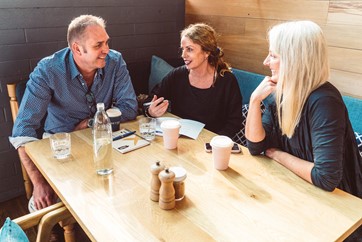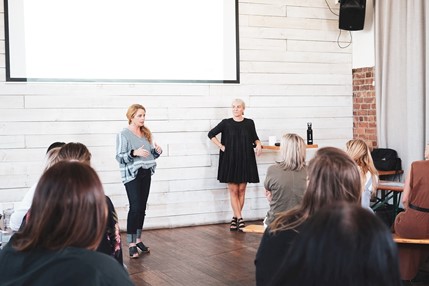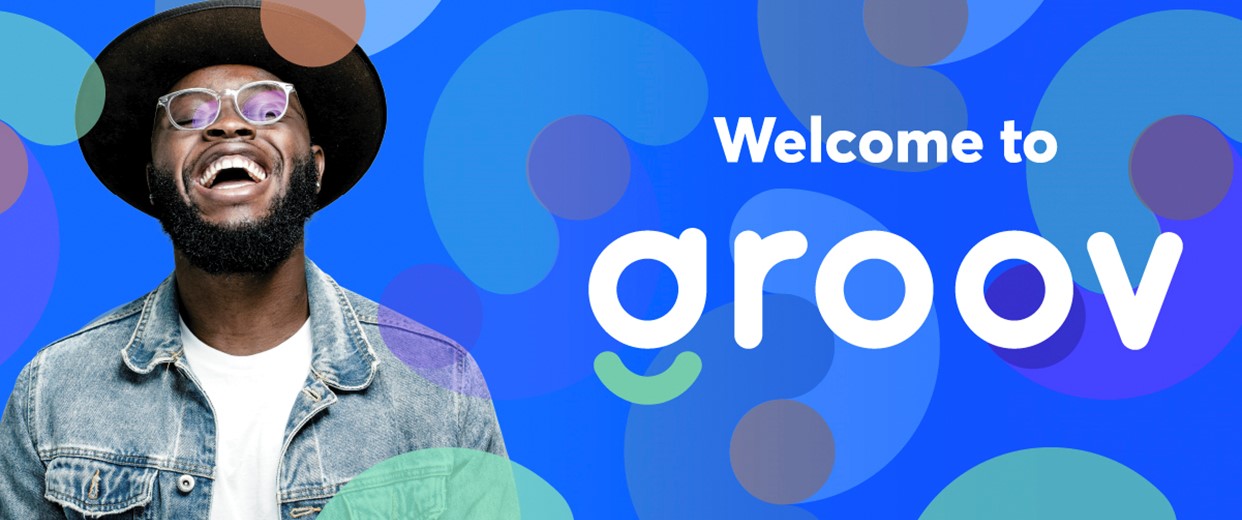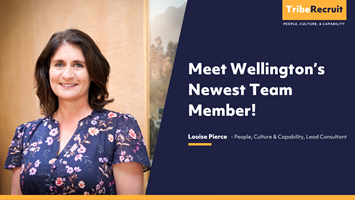![]()
As a leadership team how and why did you arrive at the point where you needed external support for your team's wellbeing?
We really care about our people, people are completely key to who we are at Tribe, but I did feel that we needed help from experts to devise a program that we could deliver and go through together. It has always been on our minds but it has become even more important to look at how we go about caring for our team's mental wellbeing.
We didn't want to focus on mental illness but instead be focused on the mental wellbeing and how you try and keep on top of it. We have had leaders in the past go on various courses to help them support people in their teams with mental illness or their mental wellbeing. But that initially wasn’t for everybody within the business and we really thought this would be a great touch point for every single person. That’s how we got there it was always in our minds, we just didn’t know what the next step of our program design was.
Did you get to a point as a leadership team (team leaders included) where you thought that we just cannot cope with supporting our team's mental wellbeing?
There were certainly things that we faced that we had not been faced with before, especially in light of recent events globally that have impacted us all at some level. I don’t know if I go as far to say “we cannot cope” but there were certainly things that we said, "we need more help so we can adequately support". It goes back to the care thing, we genuinely care about people and want them to feel as positive and supported as possible regardless of what is going on for them outside of Tribe. We talk about it often, the lines of your home life and work life, they intertwine more than ever now. We have been through various iterations of lockdowns, some people with families, some people without. 
We just wanted a team of people that would help build something, help us embed it, with science behind it, because they know better than we do. You can have all the care in the world, but its got to be a program, its got to be something that is completely adopted throughout the business, a change to language and approach, because people believe it, they feel the support and adopt it. I could probably assume that it will help some people more than others but it could actually help someone else that I don’t even know needs more help and support.
We met with a few different organisations to hear how they could best support us in the design of our overarching mental wellbeing program and we just felt that there was something very practical with Groov's approach. There was quite good alignment there in terms of what we had implemented in the past, so it just felt like a natural step.
A process like this can be quite confronting to ask your business, did you find this a daunting experience? Anxious about what you might uncover?
That's the whole point - we loved that the surveys are anonymous and we wanted it to make us think “what does this mean?” and "how can we change this so that it has a positive impact on mental wellbeing?".
There were some things that needed to be celebrated - we were ecstatic about how people felt on some things and on others we have work to do. Was it daunting? Yes, as a leader of course, but that's the whole point. Get better. Improve.
When we did see the results there were comments and questions from us celebrating those things that we had really great results and others that we wondered why that was low (48%). You can really go quite quickly into over thinking things and unpacking them, that isn’t actually useful, because it is only from our perspective and that’s the point. So yes, there were a couple of things that were uncovered that we have to understand.
So now we have to unpack, understand and people need to feel like we are going to do something about them. It is the worst thing when you talk about embedding something into a culture and you don’t do anything with results, especially the more negatively perceived ones. People will stop being open and honest because they just don’t believe you are going to do anything about it, regardless of what it means to different people.
Having Groov on board is as much individual lead, you can't have an individual doing something without the whole community doing something, you can't have the community doing something without the leaders doing something. That’s the great thing about it. I have had people come to me and say they are already using the app or listening to different podcasts, using the sleep support etc and that’s amazing to have so close to the launch.
We have set up two wellbeing groups - one focused on individuals wellbeing and one focused on workplace wellbeing. They have seen the results in full and have actionable outcomes to achieve based upon the results. These Wellbeing Champions have been empowered with control to make decisions for us all, these are not led by our leaders but instead from others in our Tribe who may have strong views or feel passionate about contributing to people's wellbeing.

What would you say to leaders out there who would approach this as more work on their plate?
It is not more work and that is not the point - this is about the responsibility that we have to look after our people's wellbeing in any way that we can. A lot of overseas businesses have had wellbeing programs embedded into their organisations for a lot longer. I feel that we are in our infancy stage and we need more awareness in New Zealand about this needing to be at the forefront of any business owners/leadership teams mind. I think the fact that there are some incredibly strong leaders in this space talking about it has been the best thing we could have had because that’s that bravery piece right - we need to be brave to make a difference.
The more businesses that do things like this the more people will expect wellbeing programs and knowing that people genuinely care and then the result will come thereafter. If you flip it back to the proactive mental wellbeing "how can I make myself as mentally strong/fit as I can" this will have an impact that is bigger than your workplace.
Take schools for example, my kids start their day with mindfulness and meditation, I mean I did not do any of that at school. So when our kids start there is going to be the expectation that it is part of life, because they have done it since they were 5! Because there is more discussion about talking about it , they are certainly not going to come out and say ‘oh was that just a thing we did in school”
So for those businesses that feel that this is optional, then there should be good, challenging conversations with leaders of those businesses to really realise the impact of you not focusing on it could have on culture, retention, results and most importantly wellbeing.
![]()
Naturally this journey took some consideration and thought, but on we are so grateful to be on. Find out more about Groov here and follow us on LinkedIn for updates on our journey.






